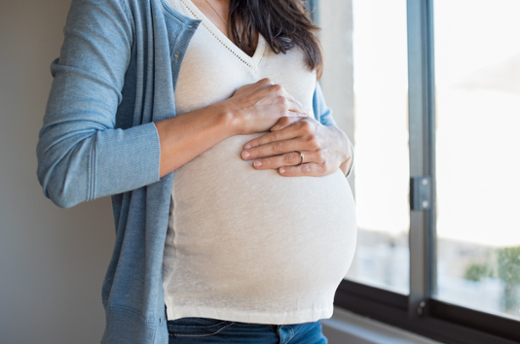Women who contract COVID-19 during pregnancy are able to make strong neutralizing antibodies but may end up passing fewer of these protective antibodies to their infants than desired, a new study at Emory University shows.
Researchers from Emory’s Obstetrics and Gynecology department and Emory Vaccine Center looked at a sample of pregnant women who were infected with the new coronavirus at some point during their pregnancy. They found that 94 percent of the maternal blood samples contained neutralizing antibodies while only 25 percent of cord blood contained the same antibodies.
The researchers also investigated whether the timing of infection in pregnancy made a difference in the levels of antibodies present, or whether the presence of COVID-19 symptoms at the time of diagnosis affected antibody levels. They found that neither factor seemed to impact neutralizing antibody levels, which suggests that women do not have to be severely ill to be protected, and that illness at any point in pregnancy will protect the pregnant person for the remainder of the pregnancy.
Maternal-fetal medicine physician Naima Joseph was one of the lead authors of the study and says the findings demonstrate robust maternal immunity but reduced efficiency of antibody protection in cord blood. “We still have to investigate further to see what this means for neonatal protection,” says Joseph. “It is possible that the mother’s active viral infection and subsequent placental destruction reduces neutralization capacity.”
In addition to looking at the B cell antibody response, Emory immunologist Vijayakumar Velu led a team that looked at the T-cell response to COVID-19 infection in pregnancy. They found that the level of helper T-cells, particularly a specialized subset called cTfh that help B cells produce antibodies, was significantly reduced in cord blood when compared to the maternal blood. “The reduced levels of cTfh in cord blood may provide clues as to why fewer than expected neutralizing antibodies cross the placenta,” says Velu.
The researchers say that while the results reinforce current thinking that pregnant women should continue to be vaccinated, more investigation is required to understand how well vaccines work in the pregnant population, who were excluded from COVID-19 vaccine trials.
The team is now enrolling vaccinated pregnant people to see if immunity from naturally acquired COVID-19 infection differs from immunity generated by vaccines. The researchers hope that their findings will help scientists use the unique biology of pregnancy to develop vaccines that can help better protect mother and child.
The research cohort included 32 pregnant people who delivered at either Grady Memorial Hospital or Emory University Midtown Hospital.
The researchers presented their findings at the 2021 Conference on Retroviruses and Opportunistic Infection this week. Some portion of these results were also shared at the Society for Maternal-Fetal Medicine’s annual meeting in January.

